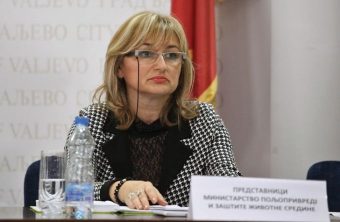 The Chief of the Department for Waste Management at the Ministry of Agriculture and Environmental Protection is Ms Radmila Šerović who has been working in the state administration since 2002. More precisely, she has been engaged in waste management in relevant ministries since 2007. She has received certificates as coach educator in the field of project management and the jobs of European Union Sertificate from the Ministry of Foreign Affairs of the Kingdom of Denmark, Centre for European Studies in Strasbourg, the College of Europe Bruges and the Faculty of Political Sciences in Belgrade. She has obtained the most significant certificate from Japan International Cooperation Agency – JICA. It is a certificate for additional professional training in the field of ‘Management of Municipal Waste and Other Types of Waste’ in the period from 12th January to 22nd February 2009.
The Chief of the Department for Waste Management at the Ministry of Agriculture and Environmental Protection is Ms Radmila Šerović who has been working in the state administration since 2002. More precisely, she has been engaged in waste management in relevant ministries since 2007. She has received certificates as coach educator in the field of project management and the jobs of European Union Sertificate from the Ministry of Foreign Affairs of the Kingdom of Denmark, Centre for European Studies in Strasbourg, the College of Europe Bruges and the Faculty of Political Sciences in Belgrade. She has obtained the most significant certificate from Japan International Cooperation Agency – JICA. It is a certificate for additional professional training in the field of ‘Management of Municipal Waste and Other Types of Waste’ in the period from 12th January to 22nd February 2009.
We have talked to Ms. Šerović about all the Amendments and Supplements to the Laws concerning waste management in Serbia.
EP: Can you tell us in a nutshell something about the Law on Waste Management and its development from 2009 to the present, to be more precise, to the Supplements that were adopted in March this year? What would be the weakest point of the Law in Serbia? Are the Laws obeyed enough?
Radmila Šerović: One of the reasons for proposing Amendments and Supplements to this Law is to ensure the compliance of legislative and legal solutions in the field of waste management. These Amendments and Supplements were related to the system for financing of waste management after the Law on Fund had come into force on 29th September 2012 and so far financing was implemented through the Fund. Namely, after the Law had entered into force, the Fund for Environmental Protection stopped working. In order to establish the continuous functioning of the system for financing of environmental protection and the need for the appropriate use of funds for environmental protection, changes have been proposed in the Law even in this part that are in accordance with the provisions of the Law on the Budget System.
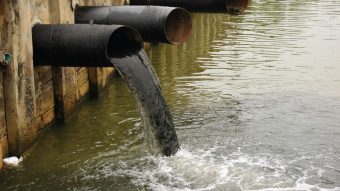
The focus of environmental protection of developed countries, including the EU countries, represents a high level of environmental protection and its foundation on economic principles (‘polluter pays’). Solving the problem of environmental pollution due to inadequate waste management and the appropriate use of benefits takes into account the application of the principle ‘polluter pays’ in accordance with the Council Recommendation 75/436 Euratom, ECSC, EEC on the determination of costs and actions of pubic authorities in the field of environmental protection – the principle ‘polluter pays’.
Amendments and Supplements to the Law on Waste Management achieve the general objectives established by the Law, in reference to the application of principle ‘polluter pays’ established by the Law on Environmental Protection on equal terms for all legal entities engaged in economic activity on the territory of the Republic of Serbia. It lays down the financing of waste management in accordance with the solutions provided in the proposed Amendments and Supplements to the Law of the Environmental Protection, and thus establishing the Green Fund of the Republic of Serbia.
The proposed legislative solutions have no negative effect on economic operators, because they are related to the filling of legal gaps, specifying of provisions, ensuring continuity in the operation of the new power plants which are subjected to integrated permit, and they are in connection with the Environmental Protection Fund’s ceasing to work. These proposed legislative solutions also represent the harmonisation with the solutions proposed in the Law on Environmental Protection and at the same time they enable the continuity in the functioning of the system for financing environmental protection, including the management of specific waste streams.
During the implementation of the Law, legislative, administrative, supervisory, institutional, technical organisational, economic measures as well as the measures for raising public awareness will be taken.
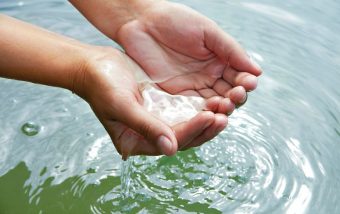
Legislative, administrative and supervisory administrative measures:
• Revision and adaptation of the Waste Management Strategy with the National Plan and program for the prevention of waste generation
• Harmonisation of regional and local plans for waste management with the National Plan
• Adaptation of executive regulations based on this Law
• Establishing the framework for the application of technical requirements for by-products and for certain types of waste which, in accordance with the regulations of European Union, cease to be waste
• Revision of the system for authorising organisations for waste testing
• The introduction and application of the system of super analysis in case of doubt in the report of the waste testing
• Improving the system for issuing, modification and revocation of licenses for waste management, and especially for waste management plants that are subjected to integrated permit
• Establishing the registration of intermediaries, that is waste retailers,
• Revision of the regulations on medical and pharmaceutical waste
Technical and technological measures:
• Solving the problem of hazardous waste storage
• Development of the system for the waste treatment, including hazardous waste
• Ensuring the disposal of household waste in containers or some other way;
• Ensuring and equipping of the centre for collecting of household waste that cannot be disposed in the municipal waste containers (bulky or other waste) including hazardous household waste
• Greater use of ash from thermal power plants as secondary raw materials (cement factories, construction systems)
• Replacement of the devices with PCB oil, decontamination of the equipment, destruction of all hazardous waste materials with PCB
Institutional and organisational measures:
• Establishment of the cooperation between the authorities for issuing licenses and operators that are subjected to integrated permit
• Strengthening of the control mechanisms for monitoring of the hazardous waste movement and the improvement of the reporting system in the filed of waste management
Development of public awareness:
• Development and implementation of the program for constant communication with all the participants of waste management that are subjected to the integrated permit
In the domain of amendments related to funding, it is not necessary to undertake measures for the implementation of suggested solutions.
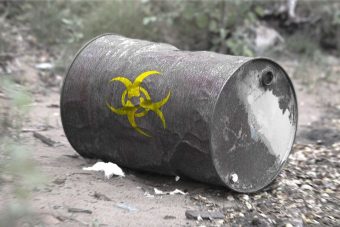
EP: Development of the National Plan for the management of construction waste is planned with the financial support of the EU. Tell us more about the plan.
Radmila Šerović: The EU finances IPA 2013 project ‘Improvement of hazardous waste management in the Republic of Serbia’ which is ongoing. Within this project, we have been working on the development of the Plan for construction and demolition waste management in cooperation with the Austrian Agency for Envionmental Protection as well as with German Federal Ministry. The first workshop was held in December last year and the next was held on 17th June 2016 on which the experts presented the Draft of the Plan. The plan is mostly related to the sorting of waste at the construction site, as well as the way of disposal of hazardous construction waste.
Construction waste is by its volume and weight one of the most extensive waste flows in the European Union, and also the field in the Republic of Serbia which needs to be regulated. Article 38 of the Law on Waste Management stipulates the reuse and reutilization, (which sates that the construction and demolition waste can be reused and reutilized). With the amendments to the Law which are planned in the future we will have a legal framework for the adoption of the Rulebook on the treatment of construction and demolition waste.
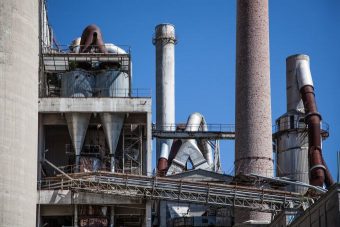
EP: Recently, you have pointed out at the meeting at Chamber of Commerce and Industry of Serbia theat only 5 to 15 percent of the total waste is recycled in Serbia. What would be the EU standards to which we strive for? How can we increase the volume of recycling in industry and public sector?
Radmila Šerović: In 2010 the Government of the Republic of Serbia adopted the Strategy for Waste Management for the period from 2010 to 2019, which included the management of the specific waste flows. It lays down the guidelines and measures to reduce the pressure on the environment caused by generation and waste management. The system is organised integrally, with all the participants in the system at the national, provincial and local level. The strategy emphasizes the importance of prevention, that is reduction of waste, reuse and the recycling of all types of waste. It is aimed at reducing the impact of waste as well as the products that will become waste, whereby this impact should be reduced during all stages of products lifecycle in order to be more efficiently and fully implemented. Waste materials should not be regarded solely as a source of waste and pollution, but also as a substitute for increasingly scarce natural resources (metallic, non-metallic, vegetable and animal raw materials as well as energy generating products) and they must be better utilized.
The Law on Waste Management and the Law on Packaging and Packaging Waste were adopted in 2009 together with a package of bylaws which arise from these two laws and which have become the basis for establishing and improving of waste management in the Repubilic of Serbia and also for the establishment of the recycling industry.
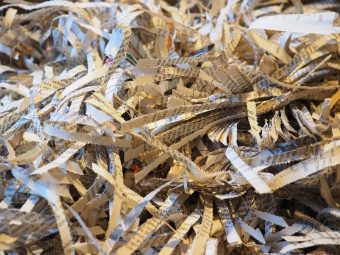
In Serbia, waste materials that are reused or treated for reuse and that belong to the category of non-hazardous waste are: paper, cardboard, plastic, ferrous metals, non-ferrous metals, waste tires, but also organic materials, wood and textiles. As far as hazardous waste is concerned, in Serbia we recycle waste oils, waste from electrical and electronic equipment, fluorescent tubes containing mercury, waste batteries and to a lesser extent, waste vehicles. Waste batteries (particulary those used in households) are almost not recycled at all. Waste from chemical industry (organic and inorganic waste) is treated only in few plants with neutralization and solidification process. Packaging contaminated with hazardous waste is treated either with liquid nitrogen and dry ice process or washing process.
Most of these materials is the part of regional (compost, wood), national (glass) or international (paper, plastic, ferrous metals, non-ferrous metals and textiles) market. In the past, the stocks, which were the most accessible and the easiest for reuse and selling (metal scraps, non-ferrous metals, paper) were first targeted.
Recycling capacities in the Republic of Serbia are increasing under current conditions. It is estimated that 10-15 percent of waste is recycled in Sebia. There has been a sudden increase of companies engaged in recycling waste in Serbia since 2003 until today. Waste Management Strategy within long-term goals that RS must fulfill, outlines the objective that it is necessary to raise the rate of recovery and recycling of packaging waste (glass, paper, cardboard, metal and plastics) to 25% of its volumes in the period from 2015 to 2019.
The total number of licenses issued to the operators for the collection, transportation, storage and waste treatment by all the institutions (Ministry, provincial authorities, and local self-government) exceeds 2000. On the official web site of the Agency for the Environmental Protection, www.sepa.gov.rs, one can see the Register of issued permits on the territory of the Republic of Serbia. The number of issued permits confirms the fact that the system of waste recycling (recycling industry) in Serbia is rapidly being established, in addition significant collecting network is being created which represents very important, necessary element for establishment and improvement of that system. The issued licences represent only the first step in the creation of a comprehensive system of environmental protection, since the process is not closed; it is the process that requires serious reconsideration and newly improved content.
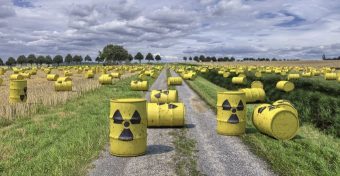
Over the last few years, the state has seriously stipulated green and recycling industry by issuing permits and subsidies and enabled equal opportunities for all those who are interested. Investments in technology, professional staff and integrated system for control and monitoring of waste flow are necessary for quality waste recycling management. In accordance with the examples of good practice in developed countries, it is necessary to reconsider the procedures for issuing permits, because non-transparent and uncontrolled circulation of recycled waste, that is secondary raw materials, is the incentive for the crime which is unfortunately present especially in specific flow of waste oils and vehicles. Therefore, much better control of tax administration and environmental protection inspection is necessary. Through amandments and supplements to the Law on Waste Management, which are now in the procedure, the new framework in this are is sought and everything is in accordance with the EU legislation which needs to be entirely transferred into the legislation of RS.
It should clearly define and prescribe the necessary incentive economic instruments as a basis for the improvement of existing system for recycling waste management that is specific waste flows. Scientific and professional public in the environmental protection absolutely agree on the necessity for establishment and functioning of the new model for financing of ‘green’ fund (after the adaptation of the Law on Amendments and Supplement of Waste Management which came into force on 1st March, 2016) as a budgetary fund. This will provide indispensable financial independence of environmental protection and thus more reliable development of recycling industry.
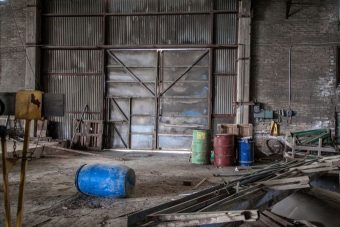
EP: Circular economy is the future of world and European economy. What branches of economy and industry in Serbia need to udergo the biggest change and adaptation? Is it possible to be adequately prepared for the EU, so we would not experience the faith of Greece or Croatia which pay for numerous penalties?
Radmila Šerović: The European Commission adopted a new legal framework for the introduction of the circular economy model in 2015 in order to strengthen the economy and ensure sustainable economy growth through sustainable use of resources. The proposed measures, such as the increase of reuse and waste recycling instead of its disposal at the landfill, ‘close the circle’, precisely that brings out the most possible benefit from all raw materials, products and waste with the increase of energy savings and reduction of air, water and soil pollution.
Circular economy represents different economic model which tends to longevity of the products and returning of all waste materials in the production processes, implying the efficient use of resources and reduced pollution of the environment with achieving financial savings and creating new business possibilities. Solutions which this concept offers are based on the processes that take place every day in the nature, whereby the waste of one industry represents the raw material for the other industry.
Taking into the account the recommendations of the European Commision on circular economy, the Ministry of Agriculture and Environmental Protection has suggested the amendments and supplements for the three laws in the field of environmental protection including the Amendments and Supplements to the Law on Waste Management which the National Assembly adopted this year. Amendments and Supplements to the Law on Environmental Protection envisages the establishment of Green fund of the Republic of Serbia, as well as Budgetary fund which will, among other things, enable sustainable financing of the system for waste management.
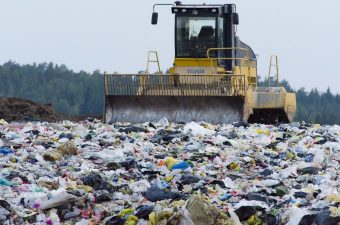
New legal soultions enable:
• Support for the concept of sustainable development and circular economy
• Opening of ‘green’ workplaces
Two new legal institutions are introduced:
• ‘The end of waste status’ – certain types of waste stop being one after the treatment and fulfilment of stipulated standards
• ’By-product’ – the use of produced residue from the production process, after being written down in the register of by-products
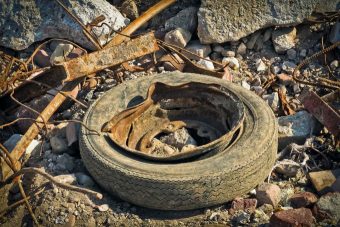
New legal soultions strengthen the principle of waste management hierarchy:
1. Prevention of waste production – it forsees the adaptation of program for the prevention of waste production and establishment of preventive measures that effect the general terms of waste production, design, production, distribution, consumption and the phase of product’s usage
2. Preparation for the reuse – is the precondition for further arrangement and development of the system for the reparation of the products
3. Recycling – the obligation of taking measures which enable the high quality of the recycling is envisaged – the establishment of separate waste collection
4. Other operations of waste reuse
5. Waste disposal
Legal soultions related to local self-governments:
• Selection and separate collection of waste in order to recycle
• Centres for household waste collection
• Record of illegal dumps
• Record and designs of sanation and re-cultivation of existing non-sanitary dumps/landfills
• The Agreement with one or more local self-governments on the location for the construction and operation of the plant for treatment, storage, reuse and disposal of waste on their territory
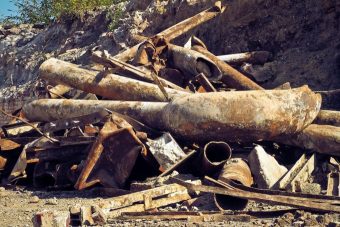
The policy of the Ministry is being developed with the aim of giving support and promoting the system of waste recycling, in order to strengthen the socio-economic business in the field of waste management as one of the basic conditions for successful operation of the industry, economy and society as a whole, which is the basic pillar of sustainable development to which all developed countries of the EU aspire.
Implementation and development od the waste management in Serbia must be based on the legal framework, and this is one one the necessary conditions for achieving the concrete results with mandatory provisions of finanacial instruments necessary for the implementation of the programs and projects in the field of waste management.
Preconditions for the implementation of necessary investments in the social and public sector in the field of waste management and especially in the field of the construction of the plant for municipal waste treatment, plant for treatment and management of hazardous waste treatment and others are:
1. Ensuring stable and sustainable system of financing of environmental protection, on the republic, provincial and also on local level in terms of financial preparation of project design documentation for large infrastructural projects as well as co-financing of the implementation of the same projects, which means providing secure financial resources for co-financing of infrastructural projects which are financed from the EU funds;
2. The preparation of infrastructural projects in the field of environmental protection and waste management on the republic, provincial and local level in terms of the preparation of project design documentation for the construction, with which one can apply at the EU funds (IPA and others) or at the other international funds for funding or cofounding of the project’s implementation.
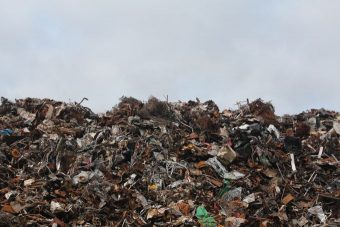
When we speak about special waste flows, especially on packaging and packaging of waste, the national goals which are related to reuse and recycling of packaging waste for the period from 2015 to 2019 are defined in this new Regulation on establishing of the Plan for the reduction of packaging waste, which was adopted at the end of 2014 by the Government of the Republic of Serbia and which is harmonised with the EU Directives.
In order to achieve national targets for the following period, it is necessary to continue working on rising of public awareness and capacities of legal persons, even with more intensive involvement of the system for management of packaging and packaging waste, as well as intensifying inspection of the companies.
Harmonisation of legal regulations with the EU regulatives is the process which is constantly ongoing. In the next period, we will face harmonization with the Law on Waste Management with the new WU directive on waste (Directive 2008/98 EZ) and the other regulations which are derived from the stated directive, the revision of the Law on packaging and packaging waste and by-laws which are derived from the stated Laws.
The construction of regional centres for the management of solid municipal waste is a strategic goal of the Republic of Serbia, which includes the construction of the entire infrastructure for the efficient and effective waste management. The infrastructure includes the construction of transfer stations for the collection and separation of the recyclable components from waste, but also the construction of recycling yards and the plants for the waste utilization with the aim of obtaining energy. Only the waste types that cannot be reused and recycled or cannot be used for obtaining energy, can be disposed in the landfills, in accordance with the Regulation on Waste Disposal in the Landfill which the Government of the Republic of Serbia adopted in 2010.
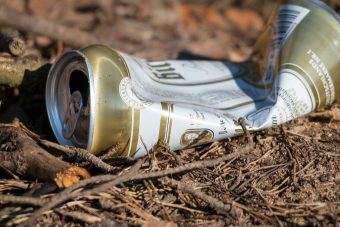
All local self-governments have the obligation to develop regional and local plans for waste management in the short term. Further construction of regional sanitary landfills and transfer stations, plants for the separation of the recyclable waste, expansion of the scope for waste management, composement plants and more is expected. It is necessary to work intensively on the preparation of planning and technical documentation for the construction of regional centres for waste management. There is an obligation for signing inter-municipal agreements on joint waste management. It is necessary to establish regional companies for waste management. In case of disagreement between local self governments in terms of determining the location for the waste management plant, the Government will make the decision on the location on the proposal of the Ministry, which is competent authority of autonous province.
In the long run, it is necessary to focus on achievement of the objectives in recycling packaging waste (2025), recycling of the material from municipal waste (2030) and in completition of the construction of the regional centres for municipal waste management in all the regions, in order to dispose the waste in the landfills in accordance with the requirements of the EU Directive on Landfill (2028). It is necessary to be focused on reaching the targets for the reduction of biodegradable waste disposal on the landfills (2022, 2026 and 2030) with the construction of the plant for composting, anaerobic digestion or MBT/ utilisation of energy from waste. Sanitation of the existing landfills, that represent the greatest risk for the environment, will be carried out. The construction of the plant for the utilisation of the energy from municipal waste, as well as the construction of the central plant for iniceration of hazardous and medical waste is also planned.
The development of the necessary infrastructure is planned in two phases.

The first construction phase of the infrastructure includes the following:
• Expanding the coverage of waste collection to 100 percent of the population;
• Primary selection, separate collection of recyclable waste – paper, plastic, glass and metal;
• Plant for secondary separation of recyclable waste – a “clean” line to separate pre-sorted waste;
• Centres for separate collection of recyclable waste (recycling centres, bulky waste, waste from electrical and electronic equipment, hazardous waste from households);
• Sanitary landfill;
• Composting of separately collected bio-waste (green waste from parks and public spaces to the least extent);
• Closure of the existing landfill dumps.
Infrastructure construction in the second phase in this case means the introduction of more modern and expensive technologies for the treatment of municipal waste, such as anaerobic digestion, energy recovery from waste. The second phase of infrastructure construction (facilities for energy recovery from waste, mechanical-biological treatment of waste) will be implemented later, except in cases of cities with the largest number of inhabitants in Serbia (Beograd, Nis and Novi Sad), where the construction of the first and second phase will take place simultaneously.

• Utilization of waste to generate electricity and district heating and 100 percent utilization of biodegradable waste;
• The mechanical-biological treatment of waste for composting, fuel production from waste for combustion or other methods.
The national system of environmental financing requires political support in order to establish appropriate facilities for the financing and implementation of projects and programs. It is necessary to provide institutional and human resources and financial capacities for simultaneous planning and implementation of national and donor (primarily IPA) funds. Taking into consideration estimated resources that will be on disposal after joining the EU, it is essential to start intensive preparation of investment projects by using resources (national and international) as soon as possible.
When we talk about the establishment and improvement of the financing system in the field of environmental protection as well as waste management, the priority of the Ministry of Agriculture and Environmental Protection is certainly providing conditions for regular filling the budget. It is not a problem to provide programs and projects, but if we fail to provide enough money in the budget to realize those programs and projects, we cannot ensure the sustainability of the waste management system. The Ministry of Agriculture and Environmental Protection believes that filling the budget lies in a more efficient process of collecting eco-taxes and better functioning of the Green Fund in the function of sustainability of environmental protection and waste management. Fees must be charged regularly and in full amount, and the proposed model is that all importers of products that become special waste flows after use, pay a fee for the customs and that all manufacturers of those products pay the same fee when placing these products on the market of the Republic of Serbia.
Interview by: Vesna Vukajlović




